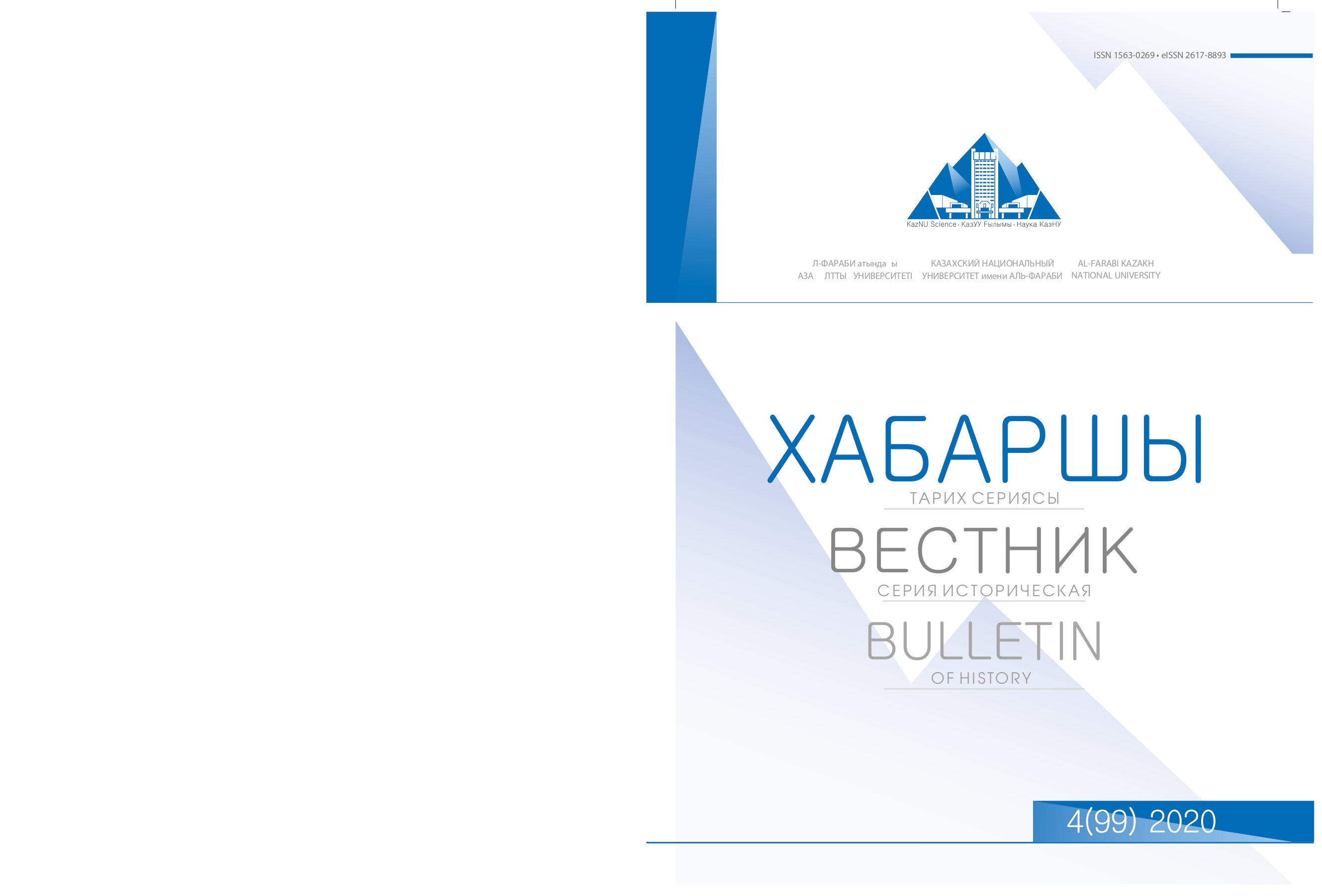Pages of History Of Establishment of The Soviet Power аnd Civil War in Documents of Archive of Hoover Institute
DOI:
https://doi.org/10.26577/JH.2020.v99.i4.11Abstract
In this article, based on the study of archival documents of the Hoover Institute, pages are given from the history of the establishment of Soviet power in Turkestan, the defeat of the white guards during the civil war and their departure to the territory of neighboring States. In order to avoid a one-sided approach in assessing the events of the confrontation between the Provisional government and the Soviets in Turkestan, the text provides not only liberal points of view in assessing the actions of the leaders of the Regional Commissariat, the Provisional government (V. A. Klimm), but also the Bolsheviks (G. Safarov). V. A. Klimm correctly grasped the prevailing public opinion regarding the reasons for the proclamation of Turkestan Autonomy in Kokand. Members of the Kokand Autonomy government, according to V. A. Klimm, considered the Declaration of Turkestan autonomy in Kokand as an organized protest against the tyranny and cruelty of the Bolsheviks, as well as an alternative to the power of the Sovdep. The content of A. Bukeikhanov’s speech at the First all-Siberian Congress shows that he was a supporter of granting the Kazakh people full autonomy.As you know, the program of the Alash party provided for the resolution of the land issue as the authority of the government of Alash-Orda before the convocation of the Constituent Assembly and the receipt of income to the Treasury of the autonomy. The armed forces, created in the form of the people’s militia, were supposed to ensure the defense of the autonomy and its citizens.According to the approved program of the Alash party, education should have been in the native language . The Bolsheviks refused to recognize this “autonomy” approaching independence. The political view of Admiral A.V. Kolchak is considered. The content of A. Bukeikhanov’s speech at the First all-Siberian Congress shows that he was a supporter of granting the Kazakh people full autonomy. Key words: Stanford, Institute, dual power, regional Commissioner, Turkestan, terror, autonomy, Federation, ataman, Baron.












